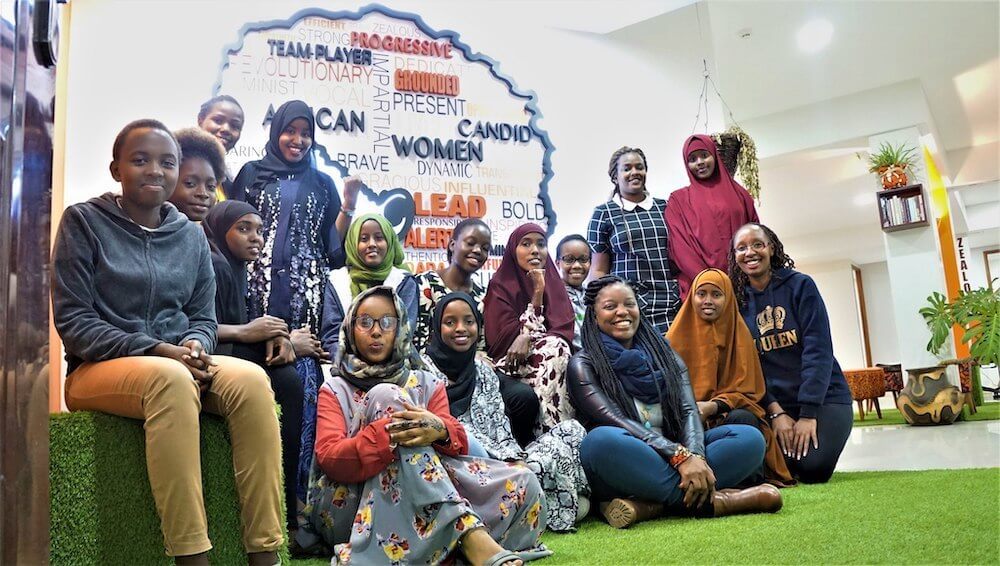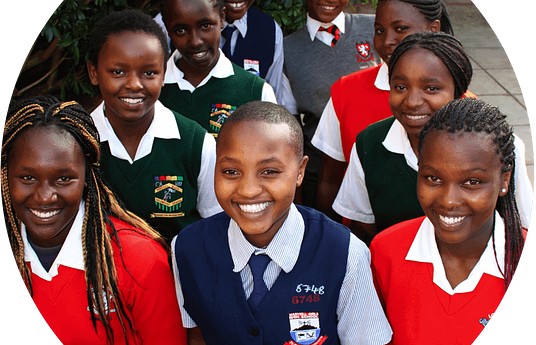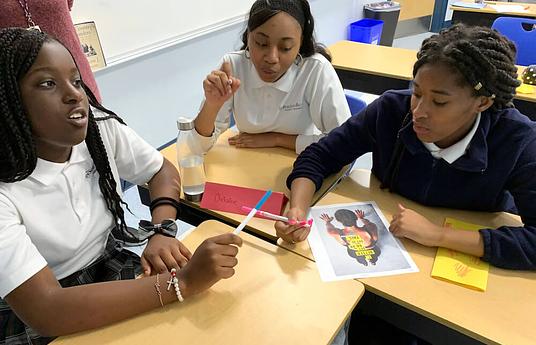Conversations on ‘the future of work’ have dominated discourse over the last decade as the world continues to advance into a future driven by technology. This, rightly so, has given new and evolving technologies to form the major channels for this discourse. However, the ‘future of education’ remains a conversation that is yet to be fully unpacked. How is education evolving with the changing environment? How are we preparing adolescent girls to engage in future workspaces that are yet to be imagined? Well, at Akili Dada, we are learning to be adaptive towards changing education needs and to be at the forefront of meeting the specific needs of girls and young women.
Here are some of the lessons the Akili Dada sisterhood has learned in 2019 and how we are applying them in our day to day work.
1. Offer Support Where It’s Needed The Most
This year, Akili Dada expanded her Young Changemakers Program to reach Kilifi and Turkana (counties that face context-specific socio-cultural issues such as female genital mutilation and child marriage). Offering support where it is most needed has allowed us to grow our contextual nuance when programming with girls.
“As part of our 5-year strategic plan, Akili Dada is intentional to go deeper and wider as we continue to program around and with girls and young women to ensure that African women access leadership in various spaces. Working in these regions is also a space for us to further develop our expertise as a thought leader in programming for girls within hardship areas as we walk this journey with them.” ~ Kate Kiama | Programs Manager
2. Build Holistic Support Systems
Culturally, Africa is a continent that believes in the saying ‘It takes a village’. This saying holds true in the future of education, especially because adolescents need more support than ever before to navigate pressures accompanying the 21st century.
“What is the role of an educator as a counselor? Young adults need guidance and support especially when it comes to dealing with personal, parental, academic and social pressure. Helping them reach their potential should be the number one goal in education, which becomes even more important if you double up as a school counselor where you must interact with students in and outside the class. As a counselor you become an advocate for the students’ well-being, and also a valuable resource for their academic advancement.” ~ Faith Vosevwa | Paza Program Lead
3. Girl-Wrought & Girl-Centered Programming
As education moves into the future, it is evolving more into content discovered by learners themselves and content designed to meet the unique needs and contexts of learners. This is a key consideration when designing programs for girls and we hope that governments and organizations begin designing curricula with specific needs of the target group in mind.
“Girls are knowledgeable and appreciate the magnitude of the challenges they and their peers face and they want to be involved in coming up with lasting solutions to these problems with us. Girls want to be inspired and to be given chances to excel in the pursuit of their happiness, whatever they perceive them to be and want us to support them.” ~ She’s The First (Partner organisation)
4. Invest In Quality Education
We are in the midst of an education revolution, which demands advancement of skills on the parts of both the educator and the learner. There is a great need for investment in growing teachers’ skills so that they will be able to evolve and meet future education demands.
“As a woman, a feminist, my aspiration is to see the girl child enjoying the best this world can offer. This comes with the ability to think critically, making the right choices and learning to learn from their mistakes in their course of climbing the career ladder.” ~ Abigail | Assistant University Lecturer in Tanzania and Participant in the Feminist Movement Building Program
5. Participating in Policy Making For & With Adolescents
We emphasize the importance of safe environments for education. Because policies determine the conditions within which adolescents learn and will continue to learn, it is important to pay attention to these policies, consult adolescents on the same and represent their interests in policy discussions. This ensures that they remain protected so that they can concentrate on their studies.
“There is high enrolment of girls to school, but the retention rate is not commensurate with it. Girls are dropping out of school for various reasons; among them, sexual violence, early marriages, exploitation and unplanned pregnancies. Menstrual Hygiene Management (MHM) is still a major challenge for thousands of girls due to the unmet need for sanitary towels.” ~ Emma Mogaka | Feminist Movement Building Program Lead
6. Shaping The Global Conversation Around Education & Rights
The global community tends to protect some groups of adolescents while unintentionally marginalizing others. As such, it is our duty as those working in education in Africa to participate actively in shaping global standards in this sector as well as beyond (the broader context of human rights in general).
“How can African women and girls more effectively contribute to shaping global standards on gender equality? How might we, as a movement, adapt to the changing faces and forms of oppression? And finally, how can we ensure that we sustain the progress made to date? Meaningful solidarity. Meaningful solidarity appreciates that the lived experiences of women and girls differ from context to context and that one group’s oppression is not less valid than the others.” ~ Joy Zawadi | Deputy Director

In conclusion, as we continue to adapt to the needs of girls’ education in the African continent, we are ensuring that the safe spaces we curate with girls (Wasichana Wa Afrika Summit, Leadership Academies and The Girls’ First Summit) provide opportunities for girls to be experts and formulate creative solutions to their challenges. These spaces also ensure girls are innovating for themselves at an early age, which is a skill that will be critical as work and education evolve across the globe. Finally, we provide these spaces because we recognize that safety and education are intertwined and interdependent. As we commemorate Human Rights Day (10th December) and 16 Days of Activism in general, we call upon educators, individuals, organizations and state actors to work towards a world in which both safety and quality education are non-negotiable; where adolescents can effectively chart the path towards relevant, learner-driven and technology-assisted education.
To know more about Akili Dada, check out their innovation page.





